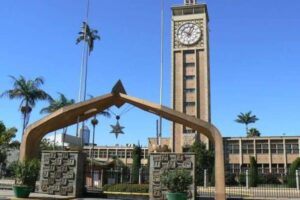Kenya’s political landscape is heating up with the introduction of the Constitution of Kenya (Amendment) Bill 2024, a controversial proposal that seeks to extend the presidential term from five to seven years.
The bill, which was recently submitted to the Senate and has already had its first reading, has ignited debate both within the chambers of Parliament and on the streets of Kenya. If passed, this bill would bring significant changes to Kenya’s governance, including the creation of a prime minister’s role—handpicked by the sitting president from among parliamentary members.
This move traces its origins back to November 2022, when a senator, as reported by Citizen TV Kenya, first proposed a shift in the nation’s political structure by suggesting the removal of presidential term limits in favor of an age limit of 75 years. This amendment would place Kenya in the company of other East African nations that have revised their constitutions to extend presidential terms, raising concerns about democratic backsliding.
While some political figures support the bill, suggesting it could bring stability to the presidency and government, many Kenyans are uneasy about the potential consequences of such a shift. The bill arrives amid a tense political environment following anti-government protests that swept across the country earlier this year.
In June, Kenyans flooded the streets of Nairobi to voice their opposition to a tax bill introduced by President William Ruto. Although the protests began as a stand against the tax increases on basic goods and services, they quickly grew into a broader anti-government movement, leading to violent clashes with law enforcement that resulted in more than 40 deaths.
The government initially defended the tax bill as necessary to alleviate Kenya’s significant debt burden and reduce reliance on foreign loans. However, the intensity of the protests, fueled by growing dissatisfaction among the country’s youth, forced the president to withdraw the bill.
Also, read; FIFA Bans Samuel Eto’o from National Team Games for Six Months
Despite this concession, public unrest continued, with calls for President Ruto’s resignation growing louder. The aftermath of these protests saw a shakeup within Ruto’s administration, including the dissolution of his cabinet and the forced retirement or dismissal of several high-ranking officials, including the first lady’s office.
Against this backdrop, the proposed extension of the presidential term is raising red flags for many Kenyans, particularly the younger generation. With memories of the violent protests still fresh, there is widespread concern that extending the president’s term could further entrench power and undermine democratic principles. The bill’s provision to appoint a prime minister also sparks fears of consolidating political control in the hands of a few, rather than fostering a more inclusive and balanced government.
As the bill undergoes committee discussions, the Kenyan public has been invited to provide feedback—a process that may shape the future of the amendment. For now, the nation waits to see how this controversial proposal will unfold, with many predicting that if the bill progresses, Kenya could see a new wave of protests as citizens, particularly the youth, push back against what they perceive as a threat to their democracy.
The outcome of this amendment could have far-reaching implications for Kenya’s political future, potentially altering the balance of power and reshaping the country’s governance for years to come. As the conversation continues, Kenyans are watching closely, knowing that the fate of their democracy may hang in the balance.
